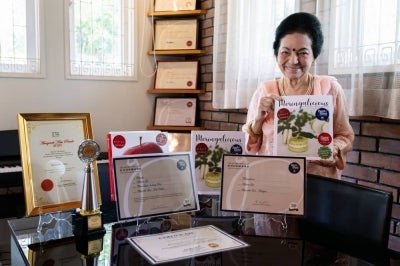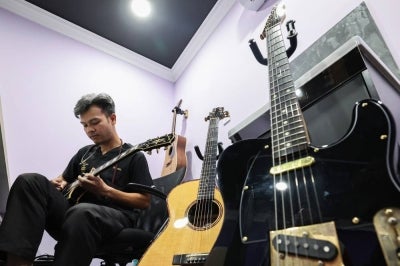Malaysia's online safety dilemma: Can we learn from Australia's policies?
Multimedia Content Forum (CMCF) CEO Mediha Mahmood believes that Malaysia could benefit from evaluating such measures.

FOR Malaysia to implement a policy safeguarding children from online dangers, it would require clear laws, robust collaboration with stakeholders, and ongoing oversight.
Australia’s decision to impose stricter measures on social media use for children highlights the global concern about online safety and raises critical questions about how Malaysia could address similar risks in its digital landscape.
Speaking to Sinar Daily, Communication and Multimedia Content Forum (CMCF) CEO Mediha Mahmood believes that Malaysia could benefit from evaluating such measures.
"Australia’s decision highlights the global concern about online safety for children. This move raises important questions about how Malaysia could address similar risks in our digital landscape," she said.
For that, she explained that social media companies should play a role in creating safer spaces for younger users, regardless of regulatory requirements.
She added that parents remain an essential part of the solution by guiding their children toward healthy and balanced social media use.
To create a safer digital environment for children, she said Malaysia must enact well-defined laws.
This includes regular oversight by the Malaysian Communications and Multimedia Commission (MCMC) to ensure compliance with evolving digital standards.
"For Malaysia to implement such a policy, it would require clear laws. It’s important to work with all stakeholders involved, including social media platforms that would need to commit to reducing risks for younger users.
"Regular oversight by agencies like Malaysian Communications and Multimedia Commission (MCMC) would also be necessary to ensure compliance and adapt the rules as digital technology evolves," Mediha said.
She further emphasised the importance of involving all stakeholders, particularly social media companies.
Platforms like TikTok and Instagram would need to commit to reducing risks for younger users, such as exposure to harmful content and online predators.
While restrictive measures are essential, experts agree they should not hinder children's access to educational tools.
Targeted restrictions could ensure harmful content is filtered while promoting child-friendly apps designed for learning. Mediha believed schools and tech providers could collaborate to develop such tools, bridging the gap between safety and education.
"Parents also play a key role and can use device or app settings to manage what their children can access," she said.
However, Mediha explained adopting such policies in Malaysia would not be without challenges.
Managing diverse opinions is one obstacle — some might view the measures as overly restrictive, while others could argue for stricter rules.
Another issue, she said, lies in enforcing local regulations on global platforms, which often have differing compliance standards.
"Separating social media use from tools designed for education would require thoughtful planning. However, adopting such a policy could also bring significant benefits.
"It could create a safer digital environment by reducing children’s exposure to harmful content and online threats," she added.
Despite the challenges, she stated the potential benefits of a policy safeguarding children online are significant.
By reducing exposure to harmful content and online threats, such measures could foster a safer digital environment.
According to Mediha, these policies could also raise awareness about digital safety, encouraging parents, teachers, and children to use the internet responsibly.
"This policy also ties in with existing efforts, such as the Online Safety Bill 2024, to create safer online spaces for all Malaysians," she said.
Download Sinar Daily application.Click Here!















